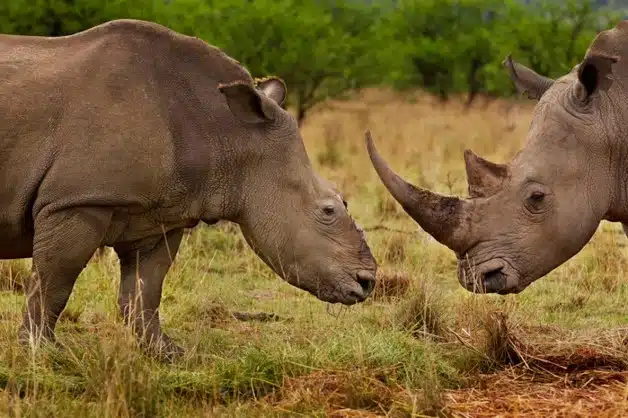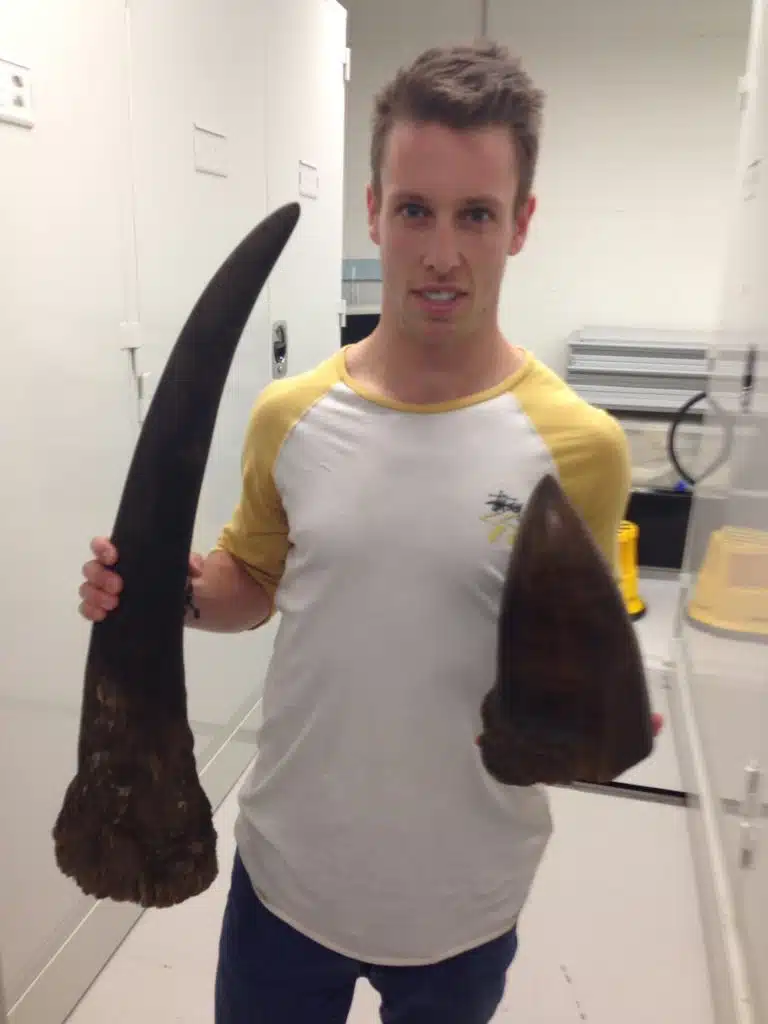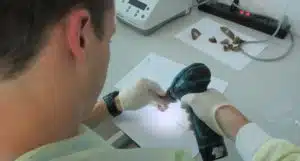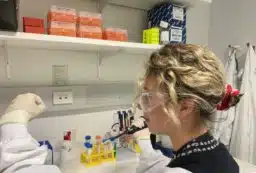Kyle Ewart has developed a test that can identify whether a horn is rhino or not – fast enough to allow police to prosecute poachers, traders and customers.
Kyle’s DNA-based species identification test can distinguish whether a seized wildlife product is in fact rhino horn, and identify which rhino species the horn comes from.
There has been a proliferation of fake rhino horn products on the market, usually made from water buffalo horn, or from non-biological material such as plastics. To convict illegal traffickers, it is vital to conduct DNA testing to determine whether the horn is actually rhino.
These tests can take up to three weeks in a lab in Vietnam (or, about a week in the lab in Australia). But Kyle’s new test can identify the species in less than 24 hours. That’s fast enough for enforcement agencies to secure a conviction. It’s also cheap enough that cost is not a barrier to convicting in developing countries.
“Over 1,000 rhinos are killed each year for the poaching trade, but the low rate of convictions and high prices for the horns make it an attractive market for criminals to enter,” says Kyle.
“Better and faster forensic techniques will aid rhino horn trafficking investigations, intelligence gathering and prosecutions.”
Kyle developed the test while working at the University of Sydney and the Australian Museum. He field-tested his technique at the Institute of Ecology and Biological Resources in Vietnam.
Contact: Kyle Ewart, the University of Sydney (and the Australian Museum), Kyle.Ewart@austmus.gov.au








 Fresh Science is on hold for 2022. We will be back in 2023.
Fresh Science is on hold for 2022. We will be back in 2023.